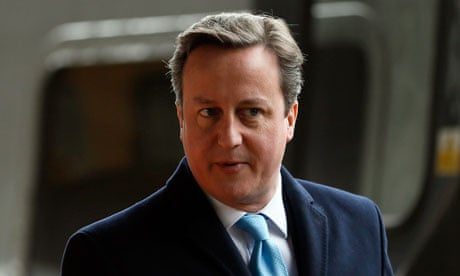David Cameron will underline his commitment to fight the new threat from jihadists in the Sahel by flying to Algeria on Wednesday to hold talks with the country's prime minister, aimed at forging what he promises will be a tough and intelligent alliance against terrorism in north Africa.
He will be the first western leader to visit Algeria since the recent terrorist assault on the country's gas installations that left 35 foreign energy workers dead and saw 36 militants killed by Algerian security forces.
Cameron's show of solidarity at the meeting in Algiers comes amid Tory fears that the prime minister is being slowly sucked into a long-term military conflict in the region, symbolised by his decision to send 330 British military personnel to the region to train African troops and support the French intervention in Mali.
In a sign of Cameron's willingness to be seen assisting Paris, it was disclosed that Britain has offered to run a joint logistics headquarters with the French inside Mali, an offer that has so far been refused. The French did accept Cameron's offer of a roll-on roll-off ferry to help transport armour by sea, and a Sentinel spy plane.
Cameron will be the first serving British prime minister to visit Algeria post-independence in 1962. No 10 said the visit was "part of his effort to lead a co-ordinated international response to the evolving threat from al-Qaida in the Islamic Maghreb".
He will also use his visit to reassure the Algerian prime minister, Abdelmalek Sellal, that No 10's frustrations over the country's handling of the hostage crisis can be forgotten.
Cameron, in common with many western leaders, became exasperated at the Algerian refusal to accept technical help, but some of the anger has dissipated as Algerians have revealed the scale of the terrorist armoury, and the imminent threat to blow up the massive gas plant.
The hostage crisis left four Britons and a UK resident dead and a further two Britons believed dead. During the siege, one statement purporting to be from the hostage takers called for an end to the French military intervention against Islamist militants in Mali.
Cameron will be accompanied in Algiers by his national security adviser, Sir Kim Darroch. They are expected to discuss how to secure the Algerian borders using satellite technology, as well as whether the energy plants need extra security, and if anything can be done to slow the flow of weapons from neighbouring Libya.
Darroch was the key British figure in talks in Paris on Monday that led to Tuesday's detailed announcements of British deployments, which consisted of 200 military personnel to be sent to west African nations, 40 military advisers to Mali, 70 on a RAF Sentinel surveillance aircraft and 20 on a C17 transport plane for at least three months.
None will have a combat role, and no final decision has been made on who will provide force protection. Britain will also allow the US, which has been involved in airlifting French soldiers and equipment to Mali, to operate air refuelling flights out of Britain.
Labour did not directly attack the deployment, but claimed there was a lack of clarity about the terms under which British forces were operating. The shadow defence secretary, Jim Murphy, said: "The UK commitment to Mali has grown from lending the French two transport aircraft, to the deployment of perhaps hundreds of troops to the region. UK trainers may be non-combat but that does not mean they are without risk."
On Tory benches there is anxiety that British troops may be sucked into a protracted conflict across the Sahel just as they prepare to leave Afghanistan with a job only half done.
African states and other countries pledged more than $450m on Tuesday to fund an African-led military force to fight the Islamists in Mali.
This support mission in Mali, known as AFISMA, has already seen troops steadily arrive from countries such as Nigeria and is eventually expected to take over from France. But the needs of the sudden and laborious African-led mission have mushroomed and the overall budget is likely to be nearer $960m.
Among the biggest donors was Japan, the country that saw the heaviest losses at the In Amenas gas plant siege in Algeria, with 10 dead.

Comments (…)
Sign in or create your Guardian account to join the discussion